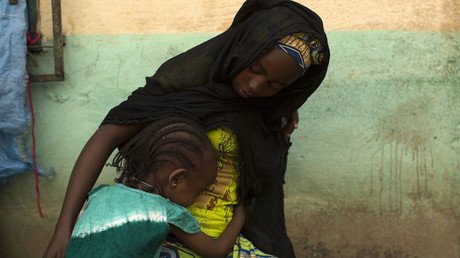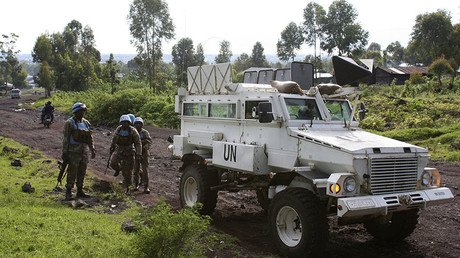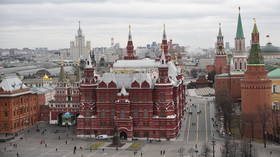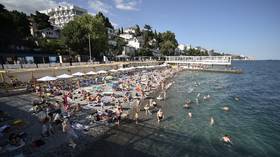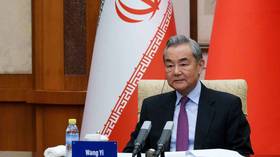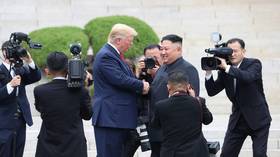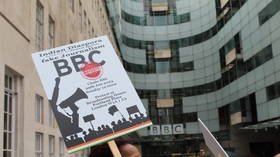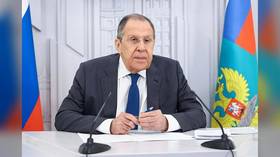Central African Republic mass grave linked to peacekeepers
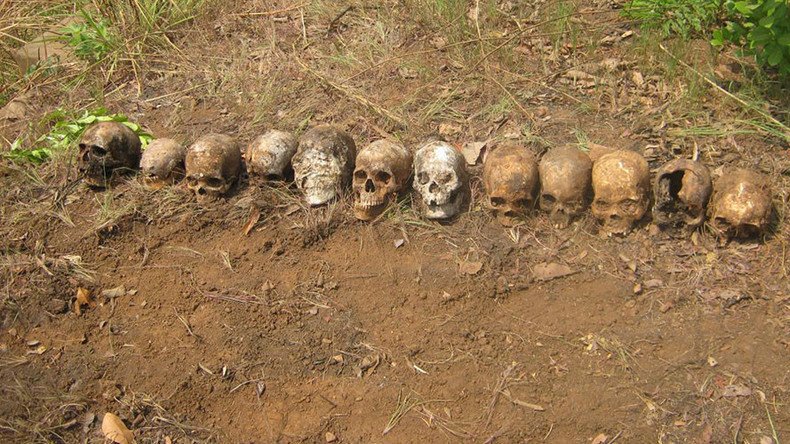
The discovery of the remains of 12 missing people from the Central African Republic in a grave near a peacekeeping site in Boali in February reportedly implicates Congolese peacekeepers in their deaths.
The bodies have been identified as belonging to a group of people arrested by the Congolese peacekeepers on March 24, 2014, according to a Human Rights Watch (HRW) report released on Tuesday. The peacekeepers had previously said that these people had escaped from detention, despite contradicting witness statements.
Tireless @hrw investigation exposes killing of civilians by Rep. Congo peacekeepers in CAR https://t.co/n2BkN0k9Bxpic.twitter.com/34zlWOpOoU
— Evan Cinq-Mars (@ecinqmars) June 7, 2016
“The discovery of 12 bodies is damning evidence of an appalling crime by Congolese peacekeepers, who had been sent to protect people, not prey on them,” said Lewis Mudge, Africa researcher at Human Rights Watch. “Republic of Congo authorities shouldn’t turn a blind eye to the mounting evidence that their soldiers committed murder in Boali and elsewhere.”
HRW investigated the disappearances, visiting the area on a number of occasions. After a March 2015 visit, they told the UN and the government about a presumed grave site, but “AU peacekeepers, UN peacekeepers, and national authorities made no effort to protect the site, or to conduct a forensic exhumation to preserve evidence for future judicial proceedings,” the organization said.
When the graves were finally discovered in February this year, HRW contacted the African Union and Republic of Congo President Denis Sassou Nguesso to urge them to conduct investigations. HRW accuses peacekeepers of being involved in “enforced disappearances” and says soldiers from the Republic of Congo killed 18 people while working as peacekeepers in the Central African Republic from December 2013-June 2015.
The March 2014 arrests were made after violence between peacekeepers and Christian vigilante, or anti-balaka, leader Maurice Konoumo. A peacekeeper was killed and the arrests were made as a result. Among those arrested were two children and a pregnant woman.
Witnesses report being told to stay in their homes and hearing screams and gunfire later than night. One says they heard the peacekeepers debating whether to kill the women and children, HRW reports.
The African Union peacekeeping mission was “absorbed” by the UN shortly after the incident reportedly occurred, Stars and Stripes reports.
HRW documented death by public execution of two anti-balaka Christian militia members in February 2014 and death by torture of another two in December 2013. It also reported two civilians were beaten to death in June 2015.
Peacekeeper controversy
Peacekeepers stationed in CAR have been shrouded in controversy after being accused of raping women and children there.
In January, the UN said EU, Georgian and French troops were accused of committing sexual abuse of minors. The Republic of Congo and the Democratic Republic of Congo were also implicated.
This week, AP reports France has suspended five soldiers, including a commander for violent acts against two CAR citizens which a French Army spokesperson said matched “the gravity of the acts.”
The UN has been accused of withholding information on more than 40 new cases of alleged sexual abuse by peacekeepers in the CAR by AIDS-Free World, a US NGO.
CAR Conflict
The Central African Republic’s civil war began in 2012 when, despite the signing of peace agreements after the CAR Bush War, political violence continued in the region. A rebel group called Seleka accused the government of failing to stick to conditions set out in the agreements. They captured towns and forced president and former army leader Francois Bozize to flee.
A coup in March 2013 saw Seleka place Michel Djotodia in charge. Fighting continued as Christian vigilantes - known as the anti-Bakaka - sought revenge on Muslim citizens. Amnesty reported incidents of massacres and even cannibalism. Djotodia was forced to step down in January 2014, the Guardian reports, and was replaced by transitional leader Catherine Samba-Panza.
Faustin Archange Toudera became president in March this year, becoming the first elected leader of the CAR in years.
